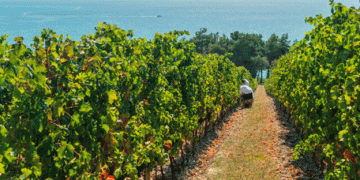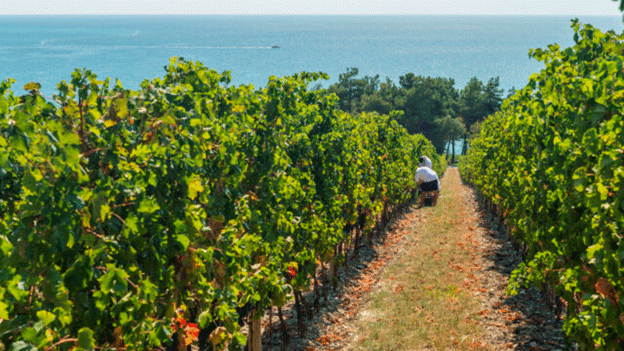The Krasnodar region, known for its fertile soil and favorable climate, is a leader in Russia’s agricultural sector. The region’s farmers, particularly in vegetable and fruit production, benefit not only from natural advantages but also from robust state support. The role of state-backed programs in enhancing the productivity and competitiveness of these farmers is critical, enabling them to produce eco-friendly, high-quality produce that is in demand far beyond the Kuban region.
Key Contributions of Government Support
In 2023, Krasnodar ranked among the top regions for the cultivation of greenhouse tomatoes, sharing the spotlight with regions such as Stavropol, Lipetsk, and Moscow. Small agricultural enterprises, including private farms and agricultural cooperatives, are central to this achievement. These entities benefit significantly from various forms of government assistance, primarily through subsidy programs that offset the costs of building and maintaining greenhouses.
For instance, Narik Tadevosyan, a farmer in the Beloglinsky district, has been growing vegetables like tomatoes and cucumbers for over ten years. His success is partly due to subsidies provided by the regional government for the construction of modern greenhouses. Starting with basic wooden-framed greenhouses covered in film, Tadevosyan has since expanded his operation to cover 12,000 hectares. His focus on quality has allowed him to tap into both local and external markets, ensuring steady demand and profitability. State support has been crucial in helping him adopt eco-friendly farming practices, such as biological pest control and drip irrigation systems, which have increased both productivity and sustainability.
Cooperative Models and Collective Success
Agricultural cooperatives are another vital element of the region’s success story. Farmers like Tadevosyan have formed cooperatives to pool resources, share equipment, and solve common production challenges. The cooperative model allows small farmers to achieve economies of scale that would be impossible on their own. It has also enabled them to qualify for additional state support, including subsidies for planting new crops and upgrading infrastructure.
Cooperatives receive direct funding to establish orchards and improve yields, as seen in the Abinsky district, where over 40 million rubles were allocated in 2023 for planting fruit trees. This is a significant increase from the 30 million rubles allocated in 2022, highlighting the government’s growing commitment to supporting the sector. Farmers in this district received over 105 million rubles in state support across various programs, including those for animal husbandry and greenhouse vegetable farming.
Greenhouse Farming Expansion
Farmers like Vitaly Smoyan, who operate greenhouse farms in Kropotkin, have benefited from regional subsidies that cover up to 30% of their expenses. Smoyan began his greenhouse farming business by growing tomatoes, later expanding into radishes with the help of government microfinance programs. Over the years, he has secured over 5 million rubles in state aid, which he used to build additional greenhouses and improve his farming infrastructure. With over 30 greenhouses now in operation, Smoyan’s farm supplies vegetables not just to the Krasnodar region but to markets across Russia.
Technological Advancements and Innovation
The Krasnodar region has also been at the forefront of implementing cutting-edge technology in agriculture. In Abinsky district, artificial intelligence was used in 2023 for fertilizing winter crops, resulting in record yields of barley (85.5 centners per hectare) and wheat (71.5 centners per hectare). Such technological advancements, combined with state support, enable local farmers to remain competitive on both a national and global scale.
State support has been instrumental in the growth and success of Kuban farmers, enabling them to adopt modern technologies, expand greenhouse farming, and form cooperatives that foster collective success. From subsidies for greenhouse construction to funding for orchard planting and animal husbandry, the government’s commitment to agriculture is ensuring the sector’s continued competitiveness. As a result, farmers in Krasnodar are well-positioned to meet the growing demand for high-quality, eco-friendly produce both within Russia and abroad.































